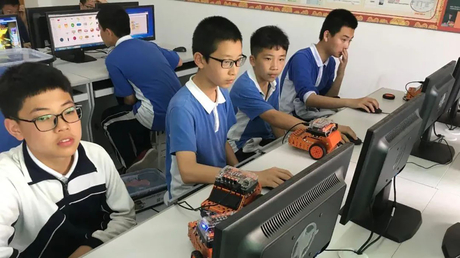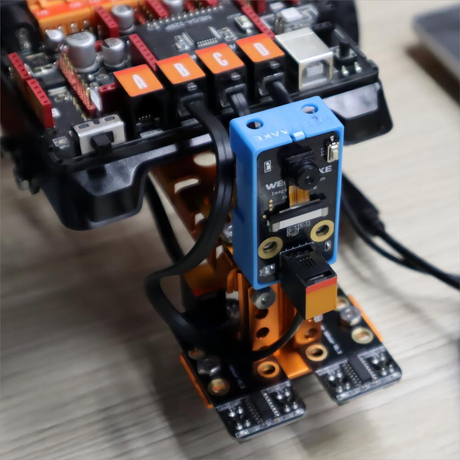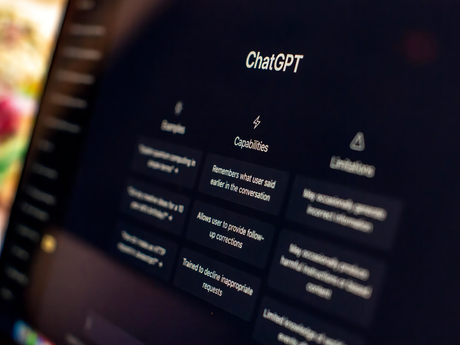
So why exactly do we let our kids learn to program?
1. Programming can cultivate children's thinking
Learning to code teaches you how to think, just like learning math, not necessarily to be a mathematician, but math teaches you a way to think, and so does learning to code.
Everyone should learn to program because it will teach you how to think.- Apple founder Steve Jobs

2.Programming can help children improve their grades
Language:
When programming, from the structure of each piece of code to the construction of the overall structure, children need to fully conceive. Teachers are accustomed to letting students establish a writing outline before teaching writing. The outline of writing an essay is actually similar to the code structure in programming.
Programming places great emphasis on sequential relationships, while also exercising logical thinking. Let the children in the golden age of development learn programming and constantly understand complex programs, which is conducive to improving children's comprehension ability and driving the reading and writing ability of Chinese subjects.
Math:
Programming can improve logical thinking and deductive reasoning skills, which are also necessary skills for learning mathematics.
The logic involved in programming, the organization and analysis of data, and the decomposing thinking of breaking down problems into smaller parts and solving them one by one can also be used in solving many mathematical problems.
Therefore, there is no doubt that programming learning can strengthen children's mathematical ability and improve their performance.
English:
Just look at the keyboard on our computer, except for numbers and symbols, there are only 26 English letters.
Although many primary and secondary school students spend a lot of time in English, because there is no real and natural English application environment, it is very difficult to learn.
The code-based programming uses all English, which creates a practical English application environment, which can effectively promote the improvement of English proficiency.
Information Technology:
Information technology itself is an academic proficiency test subject that must be studied in primary and secondary school classrooms across the country, and related question types often appear in the college entrance examination mathematics test paper, and have even become a college entrance examination subject in some provinces. Therefore, learning programming well has an obvious effect on promoting children's learning ability and cultural class performance.
In the robot debugging stage, the correctness of logic and coding is very tested, and a little error cannot be tolerated. Obviously, this error-correcting ability has applicability in any cultural exam. It is worth mentioning that primary and secondary schools are the critical period for the formation of children's abstract logical thinking and the best age to learn programming.
3. Learning to program is an investment
"Disciplinary teaching can benefit students for life, not with specific subject expertise, but subject ideas and concepts that affect their world outlook, outlook on life and values..."
When a child encounters robotic programming as a teenager, if one can really put in the time to master them. So, what robot programming means to them is a whole new perspective on the world.
Many of the occupations we see today will gradually disappear due to advances in technology, while new occupations will emerge. And most new jobs will likely require people with programming skills, which is why some predict that programmers may be the last occupation to be replaced by artificial intelligence in the future.
In short, programming is not only a demand for talents in the information industry, but will become a demand for all industries. All walks of life need not only software professionals, but also industry professionals with programming skills.
Letting children learn programming as early as possible will enable them to better adapt to the future technological society and be more competitive in the future.
WEEEMAKE is a global provider of STEAM education solutions. For schools, education and training institutions, and home STEAM education scenarios, it provides a complete range of robot hardware, programming software, teaching courses, and creates an international youth robot competition.



















